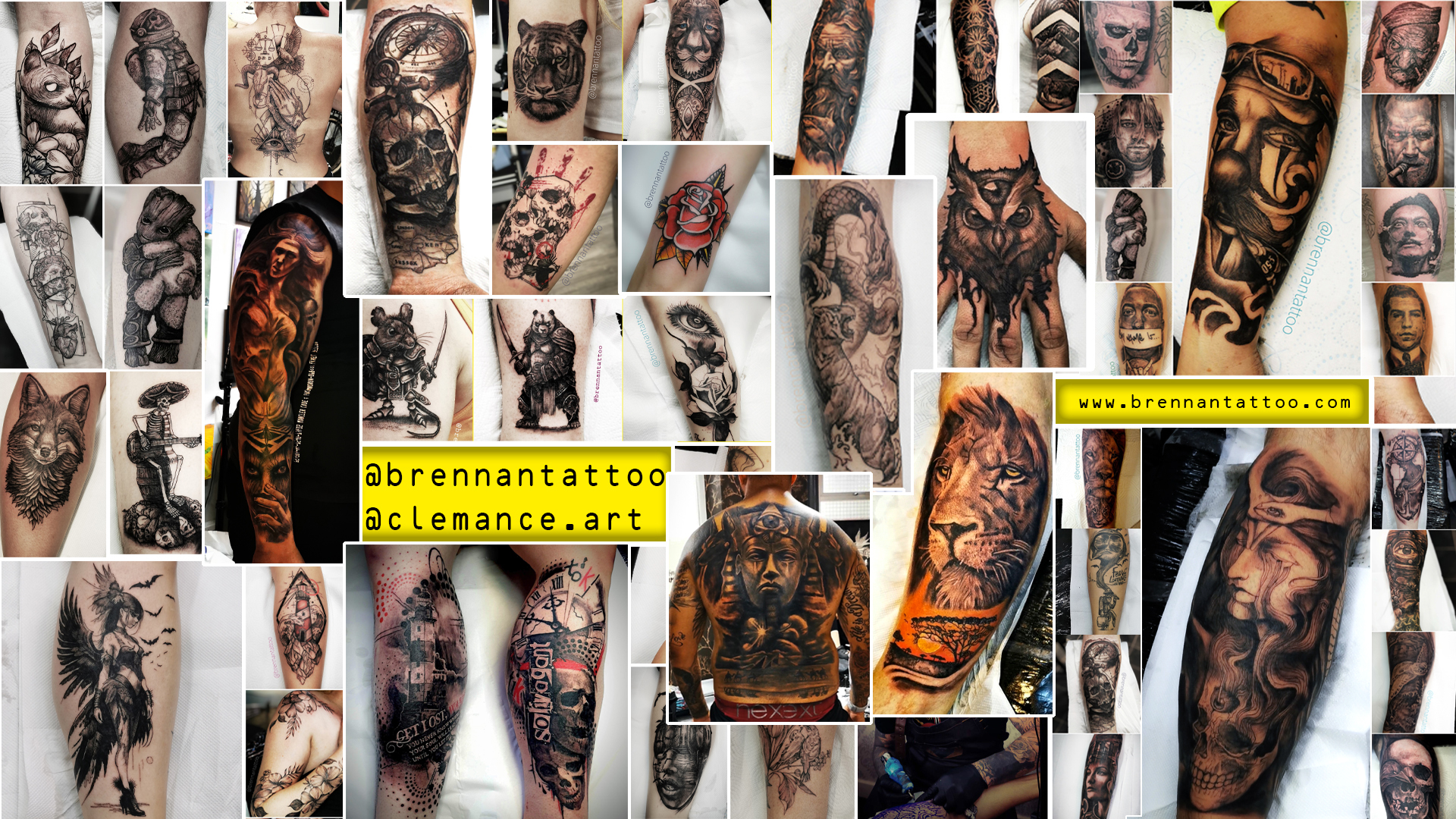How Long Does a Tattoo Take to Heal?

On average, a tattoo takes two to four weeks to heal. However, it takes about three to six months for the skin underneath the tattoo to fully heal. This time depends on specific skin reactions, tattoo size, and ink colors used.
For example, tattoos with large areas of color may create more inflammation in your skin, since more needles prick the skin—resulting in a more prolonged healing stage. People also experience longer healing times after a tattoo allergic reaction or infection.
Stage 1: Inflammation and Oozing
As your body reacts to the skin trauma, it'll send blood to the tattooed area, causing redness and swelling. U.S. Food and Drug Administration. Think before you ink: Tattoo safety. This is an immune response to jumpstart healing. The tattoed area may also feel warm or sore, and you may notice blood, clear fluid (plasma), or ink weeping from the tattoo.5 After three days, your tattoo may still look red, oozing, and swollen. These healing signs often occur for about a week, but redness and swelling should disappear after two weeks.
Stage 2: Itching
Wounds often feel itchy when they heal, and tattoos are no different. Tattoos often itch during the first and second week of healing, and the tattoo will also start to flake as the skin begins to heal.5 Whatever you do, do not scratch your tattoo. Hives or a rash, in addition to itching, are signs of an allergic reaction, not proper healing.4 With proper tattoo aftercare, itching usually goes away after two weeks.
Stage 3: Peeling
After about five days, you may notice scabbing and flakey skin. As your tattoo heals, especially large tattoos, flakey skin will start to slough off. You may also develop scabs that begin to peel off. American Academy of Dermatology. Tattoos: 7 unexpected skin reactions and what to do about them. This may be alarming, but it's not the actual tattoo peeling off; it's just skin. Peeling means your tattoo is healing. Let your skin naturally slough off, and avoid the urge to pick off any scabs or dry skin. Tattoo peeling and scabs typically occur for two to three weeks.
Stage 4: Skin Remodeling
After two weeks to a month, your tattoo should appear healed. It shouldn't be red, itchy, or flakey. However, the skin underneath the tattooed surface (the dermis) is still recovering. During skin remodeling, your dermis creates new skin cells to heal and strengthen the wounded skin.
Stage 4: Skin Remodeling
After two weeks to a month, your tattoo should appear healed. It shouldn't be red, itchy, or flakey. However, the skin underneath the tattooed surface (the dermis) is still recovering. During skin remodeling, your dermis creates new skin cells to heal and strengthen the wounded skin.
How to Help Your Tattoo Heal More Quickly
Proper tattoo aftercare helps your tattoo heal properly and prevents infection. Proper tattoo aftercare includes:
Follow your tattoo artist's bandage/wrap instructions: Depending on the bandage or tattoo wrap type, remove the bandage a few hours after tattooing. If you use breathable bandages, reapply them between cleansing and ointment application for the first week.
Gently wash your tattoo but avoid other water: For one to two weeks, wash your tattoo with warm water and fragrance-free cleanser up to three times a day. Don't submerge your healing tattoo in hot baths, long showers, hot tubs, lakes, oceans, or swimming pools.
Apply ointment or lotion: After washing your tattoo, apply a thin layer of antibiotic ointment two to three times a day. After the first two weeks, you can use water-based lotion or cream. Avoid using petroleum-based products, which can fade your tattoo and keep your tattoo from airing out.
Keep your tattoo out of the sun: Avoid tanning beds or direct sunlight for at least four weeks as the tattoo heals. Sunburn and UV light can affect healing time. (Once your tattoo heals, you should apply sunscreen.)
NEVER itch or pick your tattoo: Picking off scabs or itching your tattoo will delay healing and may damage your ink. Drying your tattoo with washcloths or towels can also remove scabs and delay healing. Friction from wearing tight pants or shirts over your tattoo can also irritate the skin.
Even after your tattoo appears healed, keep your tattoo moisturized and protected from the sun. The skin underneath that tattoo still needs some love as it heals.